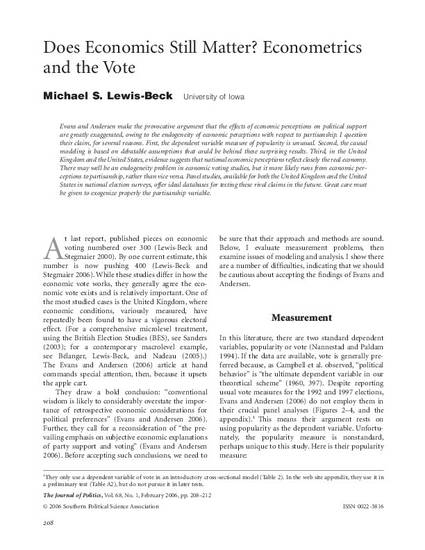
Evans and Andersen make the provocative argument that the effects of economic perceptions on political support are greatly exaggerated, owing to the endogeneity of economic perceptions with respect to partisanship. I question their claim, for several reasons. First, the dependent variable measure of popularity is unusual. Second, the causal modeling is based on debatable assumptions that could be behind these surprising results. Third, in the United Kingdom and the United States, evidence suggests that national economic perceptions reflect closely the real economy. There may well be an endogeneity problem in economic voting studies, but it more likely runs from economic perceptions to partisanship, rather than vice versa. Panel studies, available for both the United Kingdom and the United States in national election surveys, offer ideal databases for testing these rival claims in the future. Great care must be given to exogenize properly the partisanship variable.
The Journal of Politics, 68:1 (2006) pp. 208-212. https://doi.org/10.1111/j.1468-2508.2006.00381.x
Available at: http://works.bepress.com/michael_lewis_beck/164/
